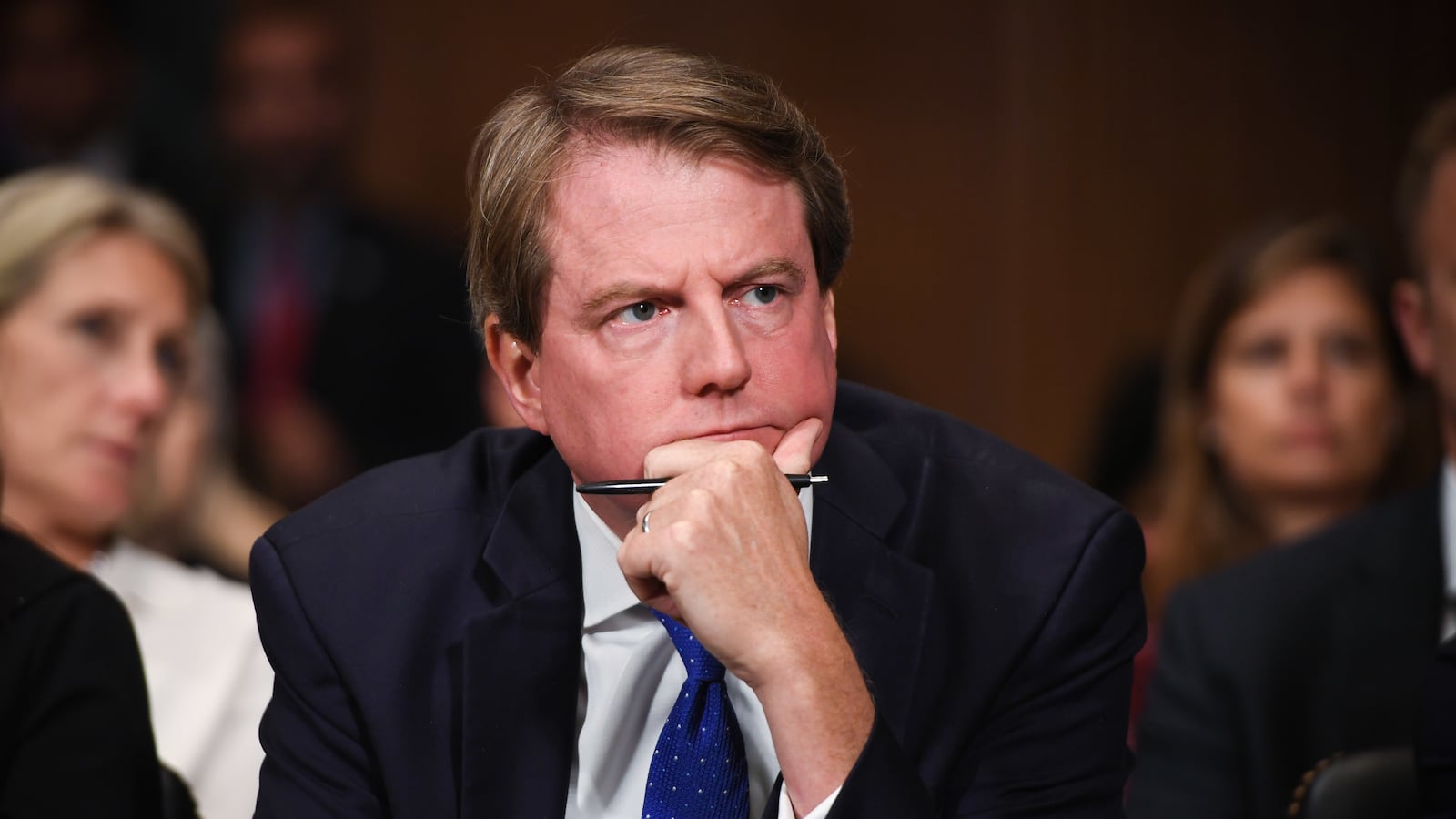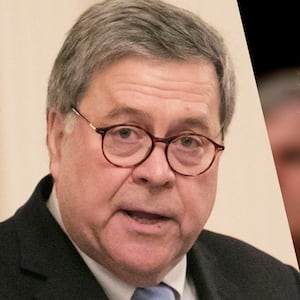It’s a big win for House Democrats—at least on paper. Judge Ketanji Brown Jackson ruled Monday that the White House’s former top lawyer Don McGahn must appear before Congress to testify as part of its impeachment inquiry. The ruling is the first by a federal judge in the Trump era ordering an ex-White House official to comply with a congressional subpoena.
“However busy or essential a presidential aide might be, and whatever their proximity to sensitive domestic and national-security projects, the President does not have the power to excuse him or her from taking an action that the law requires,” Jackson wrote in a 120-page memo.
Justice Department spokeswoman Kerri Kupec told The Daily Beast moments after the ruling that prosecutors will appeal. The Justice Department is arguing against Congress on behalf of the president. A higher court is expected to immediately put the ruling on hold, so while it’s a meaningful win for Democrats, it’s a temporary one.
At issue is whether McGahn, President Donald Trump’s first White House counsel, must comply with a congressional subpoena demanding his testimony. The House Judiciary Committee sued to enforce that subpoena in August. He defied the subpoena and did not appear for testimony. Members of the committee have said they want to question McGahn about matters he discussed with Special Counsel Robert Mueller as part of the Russia investigation. Mueller’s report cited McGahn’s testimony extensively in detailing potential instances of obstruction of justice by Trump.
“Mr. McGahn’s failure to appear was without legal justification,” Jackson wrote in her order.
She issued a 120-page memorandum along with the order explaining her decision, concluding that the president had no right to direct McGahn not to show up for his scheduled hearing.
“[W]hen the issue in dispute is whether a government official has the duty to respond to a subpoena that a duly authorized committee of the House of Representatives has issued pursuant to its Article I authority, the official’s defiance unquestionably inflicts a cognizable injury on Congress, and thereby, substantially harms the national interest as well,” she wrote.
Though the Judiciary Committee is pressing the matter, the ultimate ruling in McGahn’s case could have tectonic consequences for the impeachment inquiry taking place in the House Intelligence Committee—if it comes soon enough. If federal courts decide Congress has the power to demand White House aides testify, then the Hill would use that power to bring in a new wave of impeachment witnesses. Federal judges can take months to reach decisions on contentious matters, and congressional impeachment investigators are moving at a much faster pace. It is possible that the impeachment inquiry will be finished in the House—with a trial underway in the Senate—before the court fight over McGahn’s testimony ends.
One of McGahn’s former deputies, James Burnham, has been arguing the case for the Justice Department. Judge Jackson has telegraphed skepticism about the DOJ’s arguments that White House officials are immune from congressional demands.
“So what does checks and balances mean?” she asked in a hearing last month, according to BuzzFeed. “How can the legislature actually exercise oversight with respect to the executive unless it has some ability to enforce its inquiries, its commandments with respect to ‘give me information’?”
A host of current and former White House officials are stiff-arming congressional subpoenas, arguing that the legislative branch does not have the power to force them to testify. Chief among those are White House acting Chief of Staff Mick Mulvaney and former National Security Adviser John Bolton. Both men likely have deep insight into the Trump administration’s efforts to push the Ukrainian government to announce investigations of one of the president’s political rivals.
Bolton is involved in separate litigation regarding congressional subpoenas. Mulvaney tried to join his lawsuit but then backed out. Since Trump is one of the defendants in the Bolton suit, Mulvaney’s participation would have teed off a court fight between the president’s chief of staff against the president himself.






